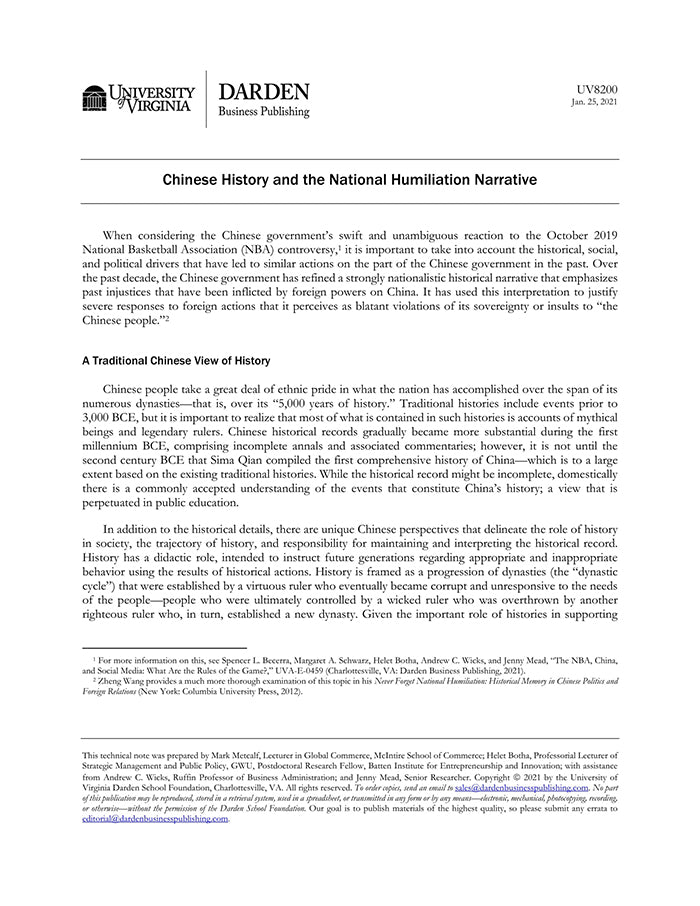Chinese History and the National Humiliation Narrative
受取状況を読み込めませんでした
This note describes how the Chinese Communist Party (CCP), founded in 1949, has attempted to create and maintain an official narrative of the country and regime that tilts toward the favorable and minimizes any negative. A key component of the historical narrative has been China's so-called Century of Humiliation, in which China suffered exploitation at the hands of various other nations. Mistreatment by foreigners resulted in China's being disadvantaged in unequal treaties, being impoverished by outrageous indemnity payments, and suffering territorial losses (e.g., Hong Kong and Macau) and violations of its sovereignty (e.g., foreign concessions). In announcing the founding of the PRC in 1949, CCP Chairman Mao Zedong said, ""Ours will no longer be a nation subject to insult and humiliation. We have stood up."" Reference to the Century of Humiliation and China's refusal to be controlled any longer was meant to inspire and motivate national pride in the Chinese people. In recent years, the influence of the national humiliation narrative has become increasingly apparent in China's international actions. The CCP has aggressively responded to perceived offenses by foreign entities, be they governments or companies, with public criticism and mobilization of Chinese netizens. This note was written to accompany ""The NBA, China, and Social Media: What Are the Rules of the Game?"" (UVA-E-0459), which outlines the Chinese reaction to 2019 social media posts sympathetic to protestors in Hong Kong. It gives background on the national humiliation narrative and its ongoing influence on China's relationship with its own people and with other nations.
【書誌情報】
ページ数:3ページ
サイズ:A4
商品番号:HBSP-UV8200
発行日:2021/1/24
登録日:2021/7/12


